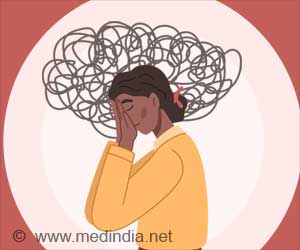Strong drive to socialize is found to be exhibited by female mice after a period of acute isolation.

‘Strong drive to socialize is found to be exhibited by female mice after a period of acute isolation.’





“That kind of social interaction between female mice is the most equivalent to our daily interactions with other people. Intuitively, we know that social isolation has that effect on our behavior: We want to see and interact with people,” says Katherine Tschida, assistant professor of psychology in the College of Arts and Sciences. Effect of Isolation
The study team explored the effects of acute isolation on mice. The animal was allowed alone in its home cage for three days. This increased the so-called ultrasonic vocalizations (USVs), as well as non-vocal social behaviors (such as sniffing and following) among the mice when another mouse was introduced to the cage.
USVs are not a speech or language; but rather sounds such as laughing, crying, and sighing that help indicate and communicate emotional states.
It was found that there was a fourfold increase in USVs compared to a control group of mice kept in group housing, and more non-vocal social behaviors.
Advertisement
This may help pinpoint how isolation acts on the circuits that control social motivation, including vocalizations.















